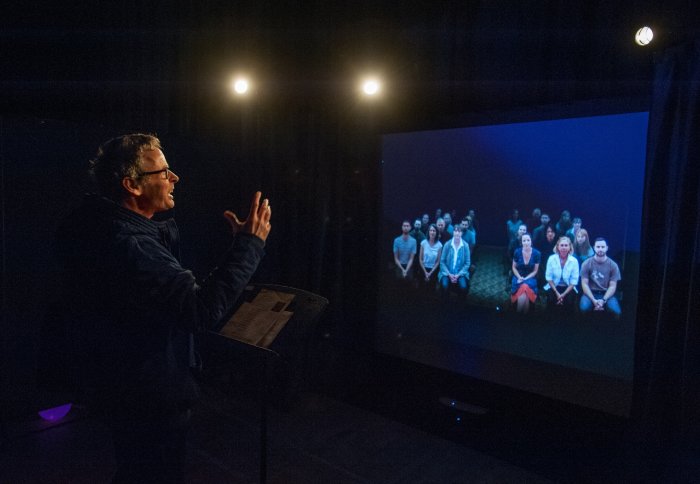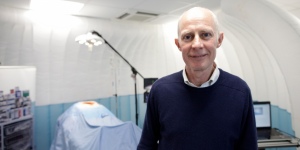Imperial and the Royal College of Music announce Centre for Performance Science

A performance simulator in action at the Imperial Festival in 2015
Imperial College London and the Royal College of Music have announced a new interdisciplinary partnership in performance science.
The Centre for Performance Science was founded at the Royal College of Music (RCM) in 2000. Since then, it has become a leading centre for research and teaching in music performance science.
The new partnership with Imperial aims to apply scientific methods to tackle challenges of human performance across a variety of fields including the arts, science and sport.
Commenting on the new Centre, Professor Roger Kneebone, the lead academic from Imperial, said:

Professor Roger Kneebone
“Performance is as much a part of what goes on in the science lab or the operating theatre as it is on the concert platform.”
“The Centre allows the talents of the RCM, where the importance of studying performance is firmly established, and extends it to areas where performance is not recognised in the same way.”
The Centre also offers specialist programmes in performance science at masters and doctoral levels, as well as teaching and supervised research opportunities for RCM and Imperial students on other courses.
INTERDISCIPLINARY RESEARCH
Research at the Centre will include a project to bring together a lace maker and a group of vascular surgeons, led by Colin Bicknell at Imperial College Healthcare NHS Trust, to share their expertise to address known problems in vascular surgery and to inspire new ideas.
The Centre is also exploring a project with magicians to look at how the techniques learned in magic, including up-close contact with an audience, may be able to aid the recovery of adults who have had sudden head injuries.
SIMULATING PERFORMANCE
Past collaborations between Imperial and the RCM in this area have included the development of simulated environments.
This began with the Surgical Simulation Suite, developed by Professor Kneebone, which recreates the atmosphere and surroundings of an operating theatre and allows procedures to be carried out on a computerised mannequin patient. The interactions between the team are recorded which, combined with readings from the surgical equipment, are then analysed to improve the team’s performance.
This experience informed the designs of the Performance Simulator at the RCM. This training facility offers musicians the chance to practise with a realistic stage and audience. The technology has subsequently been used by Imperial College Business School to help executives to hone their skills in public speaking, as part of the School’s Executive Education Impact Lab™.
COLLABORATION CENTRE
The Centre is led jointly by Professor Roger Kneebone from Imperial and Professor Aaron Williamon from the RCM. The two institutions are neighbours in South Kensington and this Centre builds on a long history of collaboration.
Understanding how to perform well is a key part of success in any field.
– Professor James Stirling
Provost, Imperial College London
Professor James Stirling CBE FRS, Provost of Imperial College London, commenting on the partnership, said:
"Performance obviously takes centre stage in music, but understanding how to perform well is a key part of success in any field, and not least in the College’s core engineering, science, medicine, and business disciplines. With our new Centre, we are excited about looking across a wide range of disciplines in order to interrogate the core processes and products of performance."
Professor Colin Lawson CBE, Director of the Royal College of Music, reflected:
“We have a long and distinguished history of partnership with Imperial. Together, we produce world-leading research and offer internationally distinctive programmes of study, such as our joint BSc in music and physics. The new Centre is a dynamic initiative that will give us further insight into performance itself, allowing us to enhance the ways in which we train and support performers.”
Article text (excluding photos or graphics) © Imperial College London.
Photos and graphics subject to third party copyright used with permission or © Imperial College London.
Reporter
Henry Rothery
Communications and Public Affairs